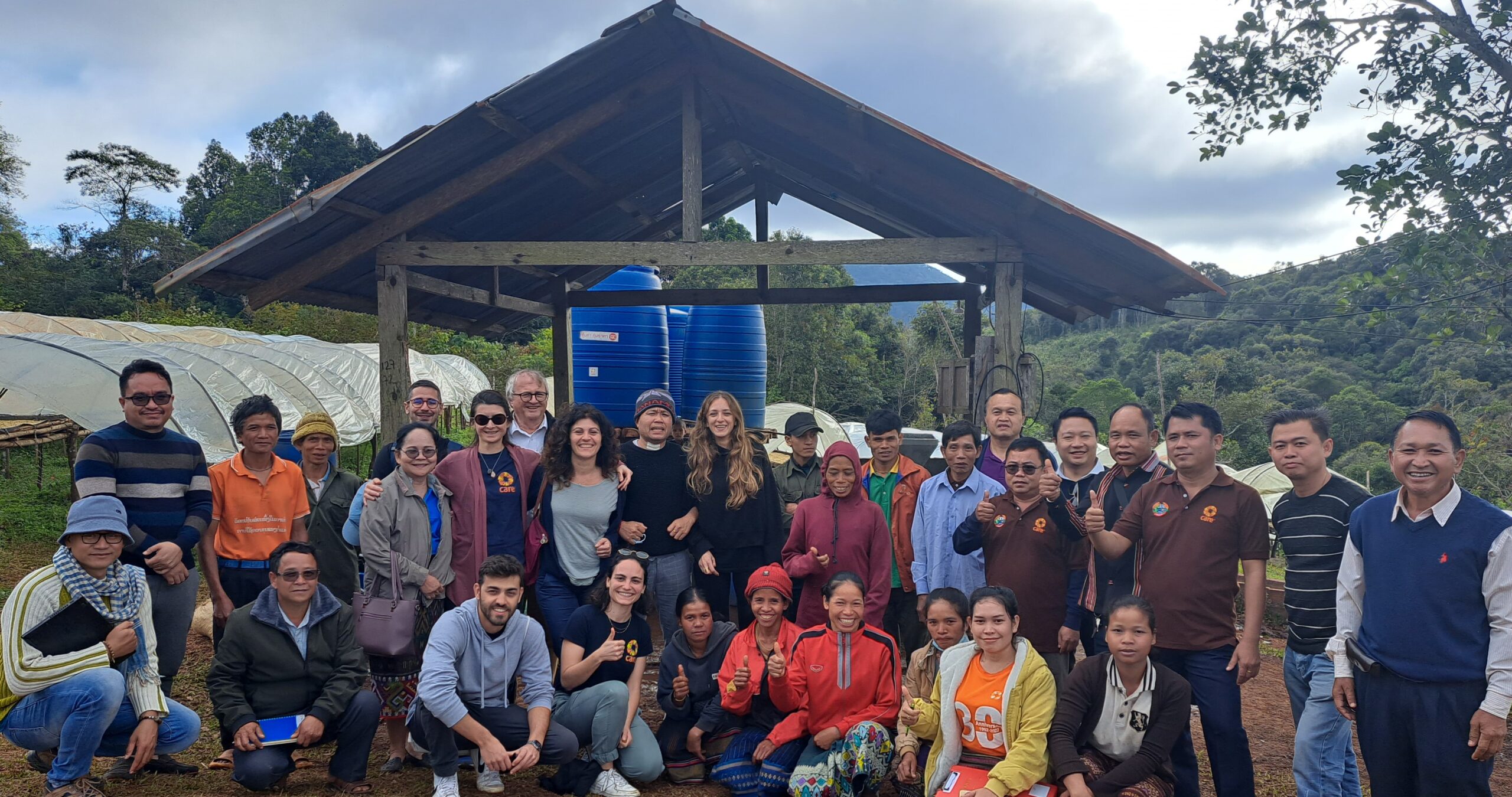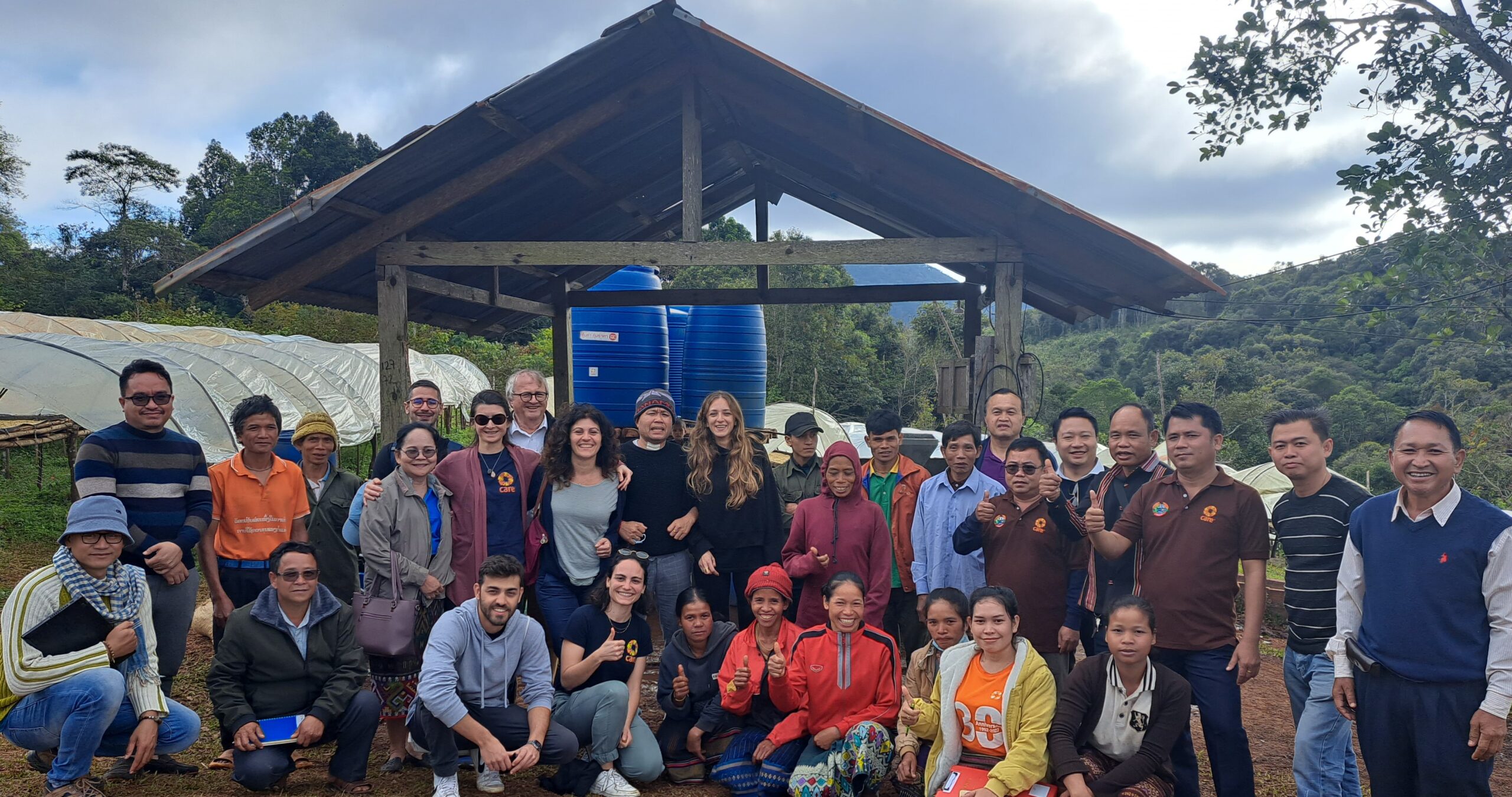On 14th December in Vientiane, the CARE Laos Organisation hosted the kick-off meeting of the SuperWeCoffee project. Super We Coffee (Sustainable Production and Ethic Responsible & Women Empowerment Coffee value chains) is a project funded by the European Union through the Switch Asia programme. The Project aims to support and improve ethical and sustainable coffee production through more resource-efficient circular practices, reducing environmental impact and empowering women in the coffee value chain.
The Project sees as Lead Applicant the Organisation CARE France with its affiliated entity Care Laos, and a Partnership composed of Haliéus, 4Form, International Cooperative Alliance Asia and Pacific, with the International Labour Organisation and Fairtrade Italy as Associates.
Thus in the Laotian capital, CARE Laos hosted at the Kick Off meeting the International Partners, including CARE France, Haliéus, Fairtrade Italia and the International Labour Organisation in attendance, as well as the relevant local Ministries including the Ministry of Agriculture and Forestry and the Union of Women in Laos, with remote linkage from 4Form and the ICA Asia and Pacific. During the kick-off meeting, participants were able to present the results of a first Analysis conducted in 5 target villages, for a first overview of the role of women in the coffee production value chain, highlighting the barriers women face in the production system. The meeting was also an opportunity to exchange and listen to the needs highlighted by the women producers in the villages, so as to have a clear overview and reading tools during the visit to the villages.
The field mission, thanks to the hospitality of Care Laos, took place during the week of 14 to 18 December, in the villages of the Dak Cheung district of Sekong Province. The Partners got to know at first hand, the coffee processing stages that take place in the villages for the small farmers, from cherry picking, washing and sorting, to pitting and drying.
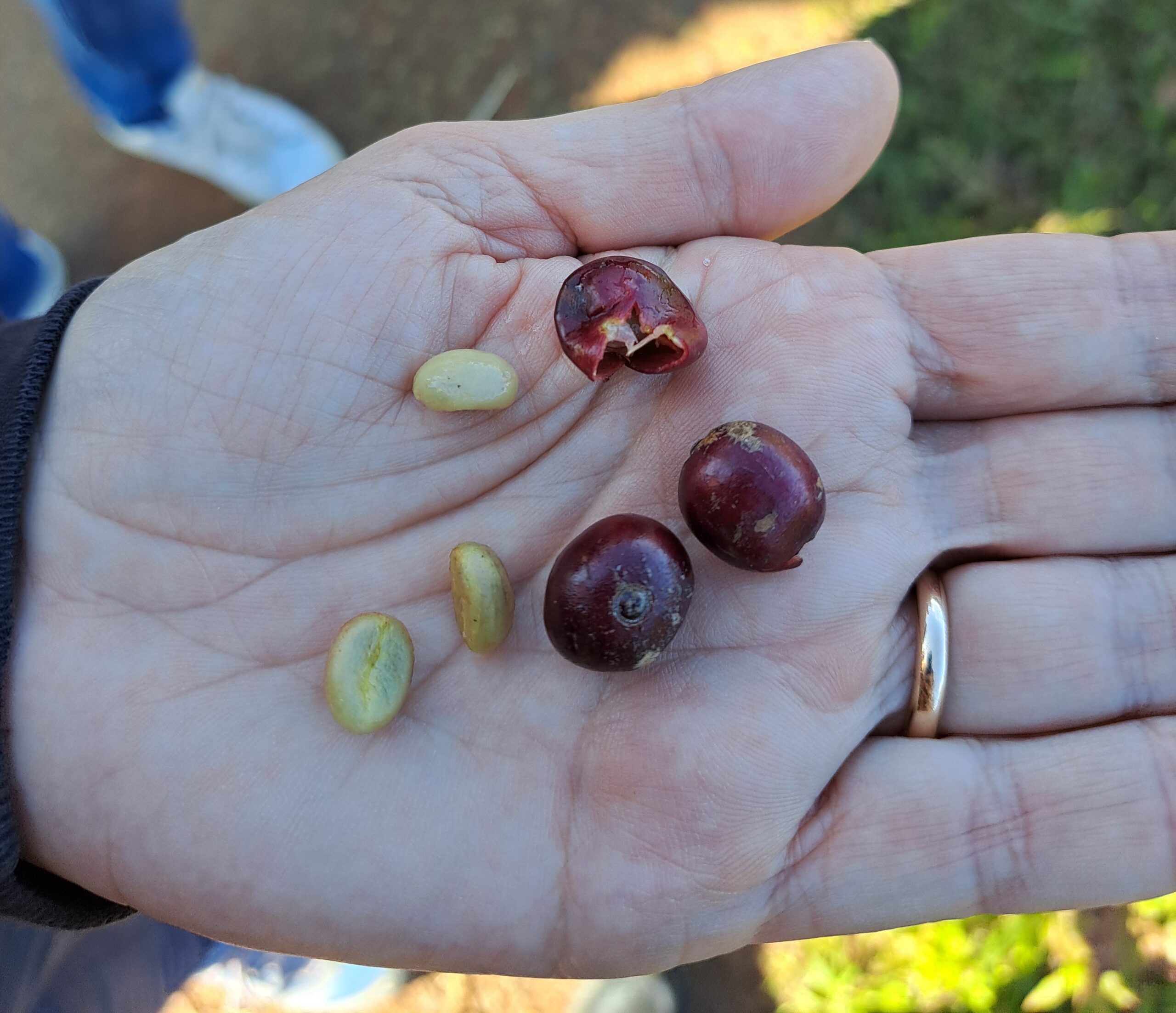
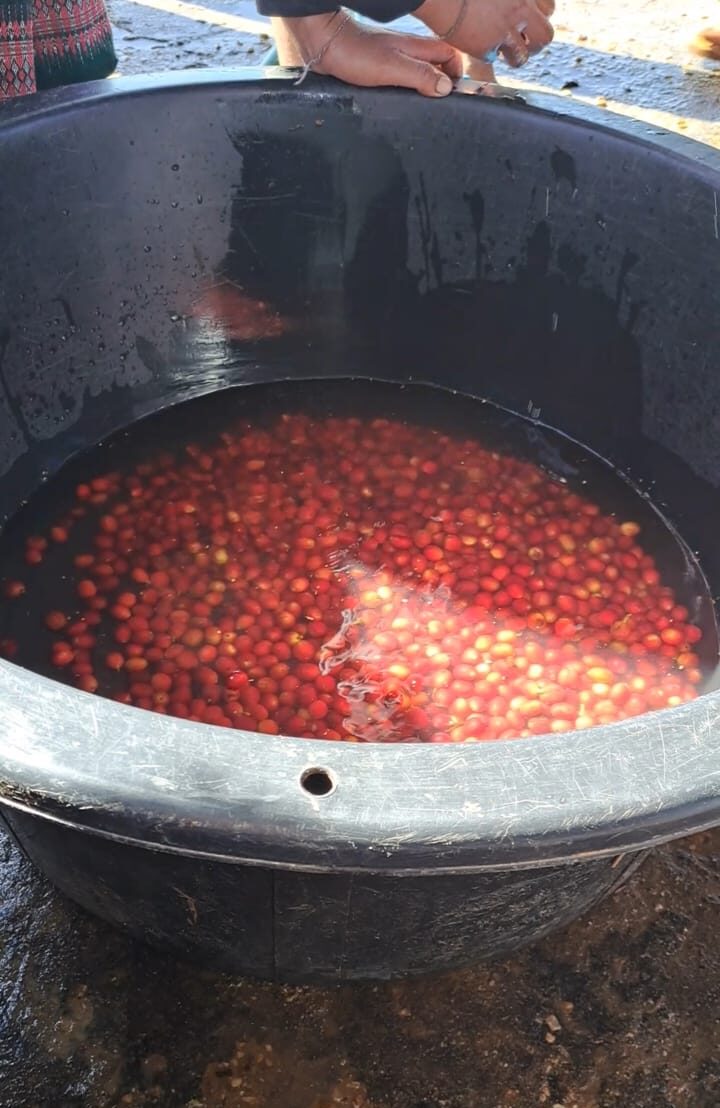
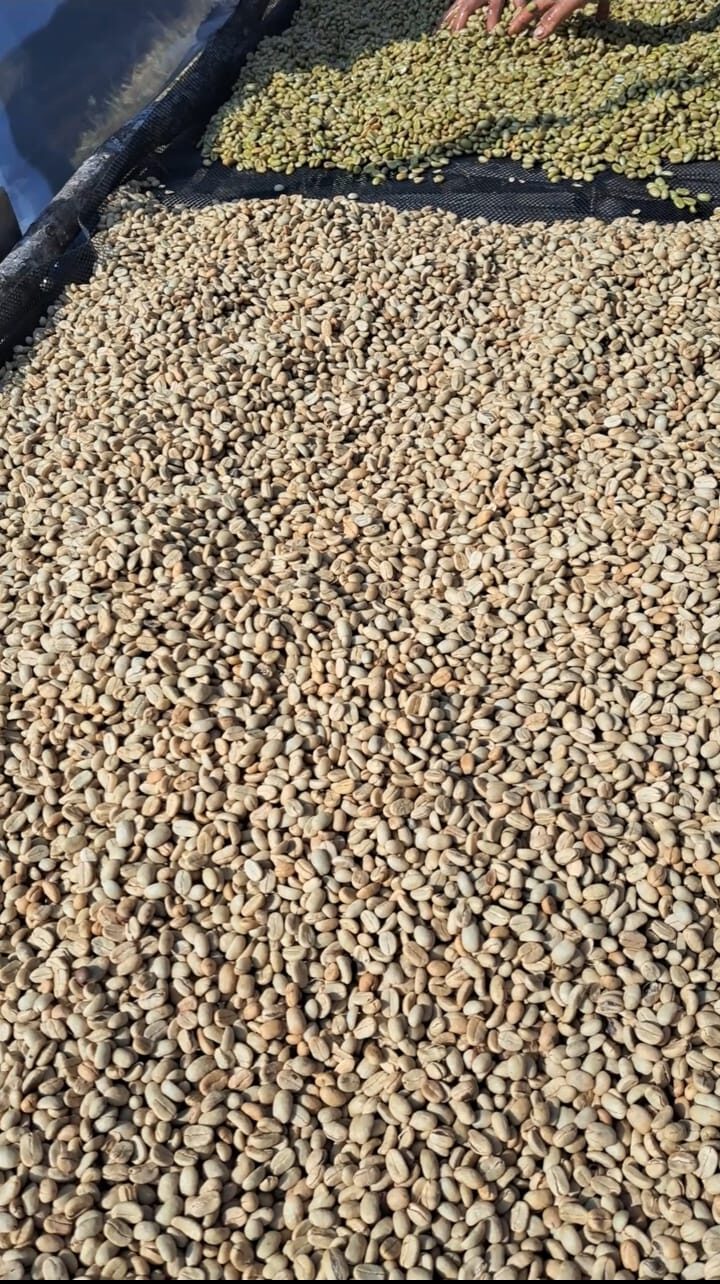
Thanks to the CARE Laos organisation, the participants were able to visit the villages, gathering input to develop tools according to the needs of the village beneficiaries. The visit to the villages and project beneficiaries was a first opportunity to exchange knowledge and information on environmental, economic and social sustainability criteria; an exchange on the importance and necessity of organising oneself autonomously and independently according to cooperative principles; all essential elements that will be developed through the project activities. The field mission was a valuable opportunity for the entire partnership to now continue the implementation of activities with full knowledge and involvement of the project beneficiaries.
